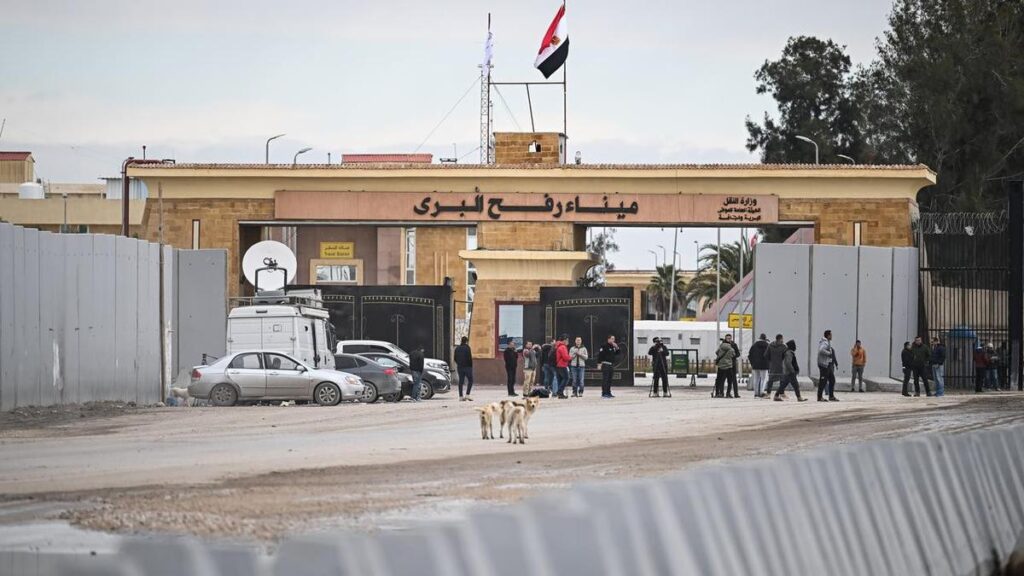
UPDATE: The Rafah border crossing between Gaza and Egypt will remain closed until further notice, Israeli Prime Minister Benjamin Netanyahu announced today. This decision comes as negotiations over the transfer of deceased hostages continue, with the reopening contingent upon Hamas delivering more bodies to Israel.
Just hours before Netanyahu’s declaration, the Palestinian embassy in Egypt stated that the Rafah crossing would reopen on Monday for entry into Gaza. However, Hamas has confirmed that it will hand over two more deceased hostages at 10 PM local time, raising the total number of bodies returned to 12 out of 28 under a recently established US-brokered ceasefire and hostage agreement.
The ongoing dispute over the return of bodies highlights the precarious nature of the ceasefire, which could easily unravel over this and other unresolved issues. The deal, facilitated by US President Donald Trump, had previously led to Hamas releasing all 20 living Israeli hostages it had held for two years in exchange for nearly 2,000 Palestinian detainees in Israeli custody.
Despite the progress, Israel claims Hamas is lagging in returning the bodies of deceased hostages. Hamas argues that the extensive destruction in Gaza complicates the search for some of the bodies, requiring additional time.
As part of the ceasefire arrangement, Israel is also expected to return 360 bodies of Palestinian militants in exchange for the deceased Israeli hostages. To date, it has returned 15 bodies for each Israeli body received.
The Rafah crossing has been largely closed since May 2024, severely limiting movement for Gazans. The ceasefire agreement also mandates an increase in aid to Gaza, where hundreds of thousands are facing severe food shortages, as reported by the IPC global hunger monitor. Following a complete halt of supplies for 11 weeks in March, Israel had begun to ramp up aid in July, further increasing it since the ceasefire took effect. According to the UN World Food Programme, around 560 metric tons of food are now entering Gaza daily, although this remains insufficient to meet the overwhelming demand.
The challenges to President Trump’s peace plan remain daunting. Key issues concerning Hamas disarmament, governance of Gaza, the formation of an international “stabilization force,” and the establishment of a Palestinian state are still unresolved.
As the situation develops, attention will be focused on the upcoming handover of bodies and any potential changes to the status of the Rafah border crossing. The fragility of the ceasefire continues to cast a shadow over the prospects for lasting peace in the region.





